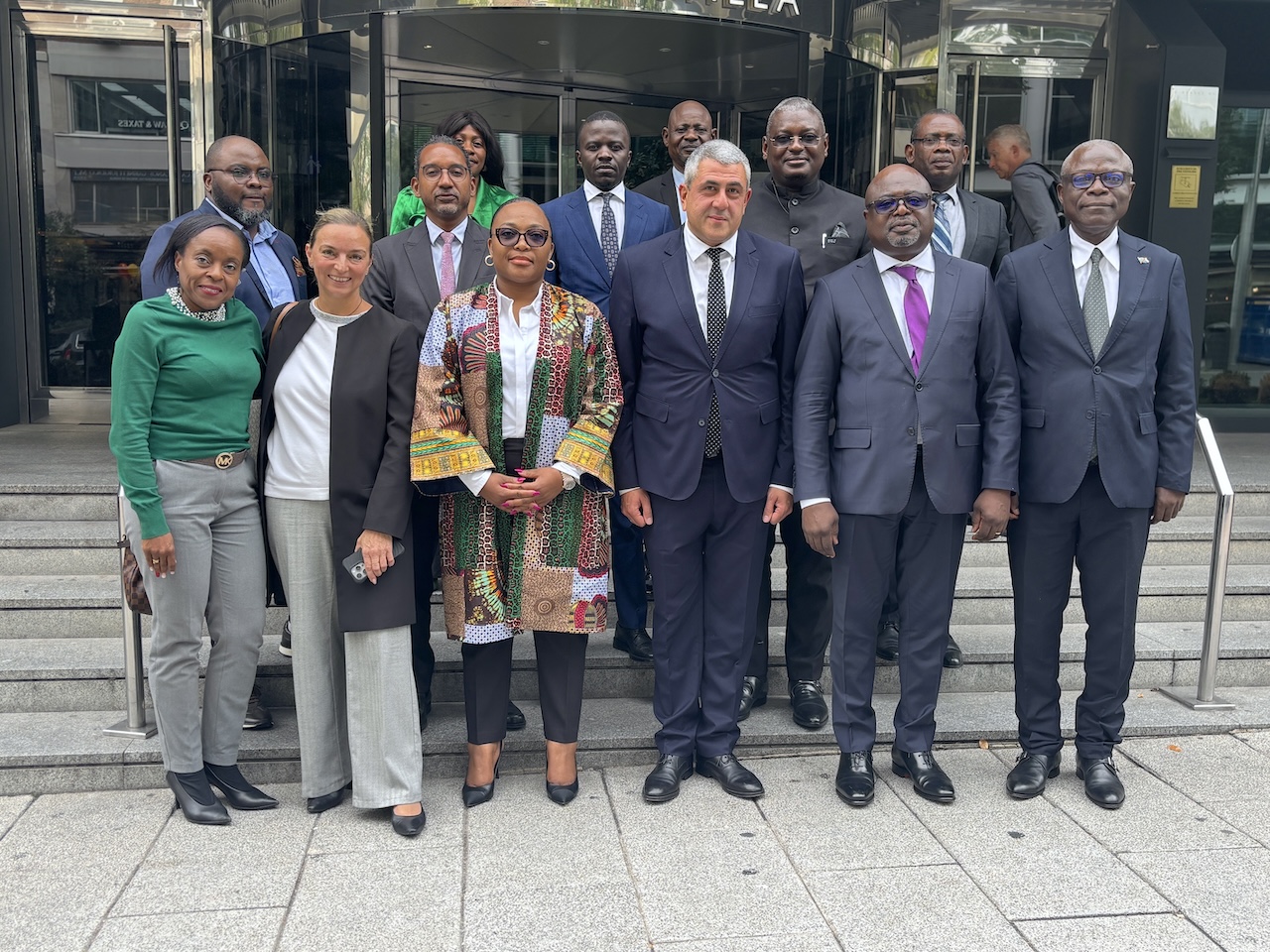 DR Congo’s Tourism Minister leads a delegation on a working visit to UN Tourism headquarters
DR Congo’s Tourism Minister leads a delegation on a working visit to UN Tourism headquarters
The Democratic Republic of Congo’s (DRC) Minister of Tourism, Didier M’pambia Musanga has led a high-level delegation to the United Nations World Tourism Organisation (UN Tourism) headquarters in Madrid, Spain.
The delegation, which included senior officials from the Ministry of Tourism, the Office Nationale du Tourisme (ONT), represented by its CEO Jolie Yombo Mukendi, and representatives from the DRC Embassy in Madrid, was at the UN Tourism headquarters to confirm the country’s bold strides to position itself as a sustainable tourism destination. This working visit marks a pivotal step in the country’s ongoing efforts to rejuvenate its tourism sector and harness its vast cultural and natural assets.
During the visit, the delegation engaged in extensive discussions aimed at strengthening partnerships and securing support for the DRC’s tourism agenda. Minister M’pambia Musanga emphasised the importance of collaborating with international organisations, such as the UN Tourism to build a sustainable ecosystem that can attract global visitors while benefiting local communities. The focus was on developing strategies that would enhance DRC’s visibility on the world stage, aligning with the country’s broader vision of using tourism as a catalyst for economic growth and social development.
A central feature of the talks was the introduction of the “touristic village” concept, a comprehensive infrastructure model designed to integrate essential services, such as energy, healthcare, education, and hospitality with tourism. This initiative seeks to create vibrant, self-sustaining hubs that will not only attract tourists, but also improve the quality of life for local residents by providing jobs and access to critical services. Inspired by globally recognised tourism destinations, such as Victoria Falls, DRC aims to leverage its vast resources, such as the iconic Congo River and the biodiversity-rich Virunga National Park. These sites, along with the country’s diverse cultural heritage, offer immense potential for eco-tourism, adventure tourism, and cultural exploration.
The delegation also worked with UN Tourism officials to develop a comprehensive global marketing strategy that will showcase the DRC’s unique natural and cultural attractions. The strategy will aim to position the country as a top destination for eco-conscious travellers, adventure seekers, and cultural enthusiasts. Recognising the competitive nature of global tourism, the DRC team discussed ways to craft compelling narratives and campaigns that would resonate with international audiences, and help to redefine the country’s image on the global tourism map.
Another critical aspect of the sessions was the need for resilience in the tourism sector. The delegation addressed the importance of establishing robust crisis communication mechanisms to safeguard the industry against potential disruptions, including security concerns and environmental challenges. By building a strong communication framework, DRC aims to ensure the long-term stability and growth of its tourism sector.
In terms of product development, the delegation explored ways to enhance existing tourism offerings while creating new experiences that align with international standards. The goal is to maintain the authenticity of DRC’s rich cultural and natural assets while meeting the expectations of global tourists. This includes developing new eco-tourism experiences, wildlife conservation programmes, and cultural heritage tours that will attract diverse groups of travellers.
Natalia Bayona, Executive Director, UN Tourism, expressed her full
support for DRC’s vision, emphasising that the organisation is committed
to providing technical assistance and expertise to help the country
achieve its tourism goals. UN Tourism departments shared various
programs and projects designed to assist DRC in developing its tourism
infrastructure, building capacity, and promoting sustainable practices.
The visit also underscored the importance of technical assistance in supporting the DRC’s long-term tourism development. The delegation explored opportunities for infrastructure projects, workforce training, and the adoption of sustainable tourism practices that will enhance the country’s capacity to manage and expand its tourism industry. These projects, supported by international partners, will play a crucial role in helping DRC build a competitive and sustainable tourism sector.
H.E. Zurab Pololikashvili, UN Tourism’s Secretary-General, praised the DRC delegation for taking the time to visit the organisation’s headquarters and for their commitment to understanding how UN Tourism can collaborate to maximise the DRC’s tourism potential. He highlighted the significance of the touristic village concept as a cornerstone of DRC’s tourism strategy, noting that its implementation could have a transformative impact on local communities by creating jobs and improving essential services.

